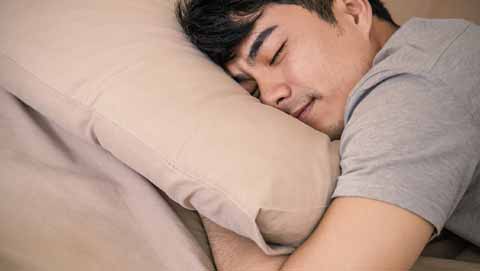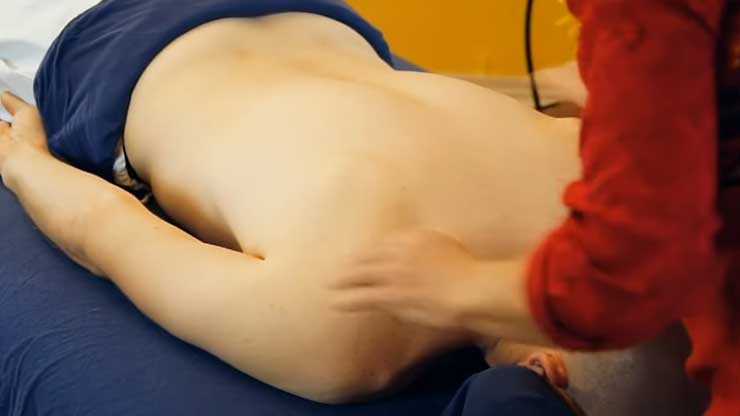Massage therapy is usually associated with vacations and resorts, but this feel-good treatment can be an important part of your wellness routine. In fact, research shows that therapeutic massage can reduce pain and anxiety, boost your immune system, improve sleep and increase flexibility.
Massage involves the manipulation of the soft tissue of the body with hand strokes, kneading, vibration and tapping. It can involve different amounts of pressure and some people may prefer light touch or deep pressure.
Relieves Stress

A massage is a great way to relieve stress. The pressure exerted during a massage causes the skin’s blood vessels to dilate, which helps lower heart rate and blood pressure. In addition, the endorphins released during a massage help to reduce the levels of cortisol, the stress hormone.
A study conducted by researchers at Granada University showed that massage decreases the frequency and severity of tension headaches. Massage therapy also increases flexibility and range of motion in muscles, which can decrease stress levels and pain.
Massage also encourages relaxation psychologically by increasing the level of positive hormones such as epinephrine and norepinephrine. These hormones are released when a person is in a relaxed state of mind, which can increase healing time allowing an individual to return to exercise and sport more quickly.
Relieves Pain
Massage increases the circulation of your blood, which in turn reduces inflammation and eases pain. This happens because the friction applied during a massage creates an increase in temperature, and that in turn relaxes the muscles.
During massage, the nervous system slows down, and that reduces the heart rate, lowers blood pressure, and changes EEG patterns (electrical activity in your brain). It also stimulates a release of hormones like serotonin and oxytocin that boost feelings of well-being.
Research shows that 건마reduces the levels of a neurotransmitter called substance P, which transmits important messages throughout your nervous system, including sensory and, most importantly, nociceptive pathways, or pain pathways. In fact, this is the primary reason that many medical insurance companies now cover massage therapy.
Boosts Immune System
Research shows that massage increases the number of white blood cells, which are a key part of the immune system and help fight off germs. Massage also lowers cortisol levels, a stress hormone that can suppress the immune system.
During massage, the skin’s nerve signals are elicited by pressure, which triggers a series of physiological responses that help to reduce stress and promote healing. This is why some studies show that even a 20-minute chair massage can have positive effects.
Regular massage can naturally increase the cytotoxic (killer) activity of lymphocytes, which improves the body’s ability to kill certain cancer cells and decrease the amount of inflammatory cytokines in HIV patients. Research also showed that a single session of massage increased the quality of life and preserved immune function in AIDS patients.
Increases Flexibility
The breakdown and realignment of collagen fibres during a massage increase flexibility. The increased elasticity reduces the risk of injury and allows muscles to move more freely.
During a massage, pressure receptors stimulate vagal activity, which slows your heart rate and blood pressure, helping you to relax. The calming effect may also help you focus better on tasks at hand.
Tight muscles often retain toxins such as lactic acid, and massage helps flush them out of the body. This can help make chronic inflammatory conditions such as asthma and dermatitis more manageable. In fact, massage may even help ease some symptoms of psychiatric problems. However, it is important to seek medical advice before starting massage therapy for psychiatric conditions. Massage may alter brain circuitry and autonomic nervous system activity, impact hormones and immune system function, making it a potentially useful treatment to supplement your doctor-recommended care.
Improves Sleep

The stress-reducing effects of massage can help people who have trouble getting a good night’s sleep. A lack of sleep leads to fatigue, a worsened ability to concentrate and may even contribute to health problems like heart disease and diabetes, experts say.
Insomnia is a common sleep disorder characterized by difficulty falling and staying asleep. Research shows that massage therapy decreases cortisol levels, boosts the production of serotonin and dopamine, and improves melatonin levels—all factors that can contribute to insomnia.
Conclusion:
The calming environment and soothing music that accompany many massages also have a calming effect, which helps improve sleep. Regardless of what causes your sleep issues, regular massages can help — and they’re much less expensive than sleeping pills. Interestingly, some studies show that massage also increases white blood cell counts in infants, and improves immune function in cancer patients and HIV patients.
